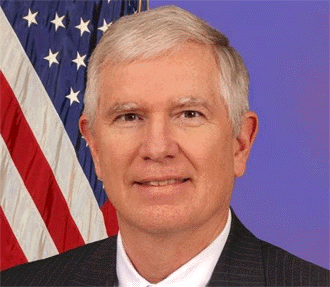By Brandon Moseley
Alabama Political Reporter
In 1969, America landed a man on the moon. To this day, no other nation has been able to duplicate that feat. The space shuttle was the first reusable orbiter and for 25 years it was the dominant manned space vehicle on the globe.
President George H. Bush (R) proposed building the very complicated and ambitious X3 to replace the Space Shuttle instead of a much less ambitious and more achievable next generation space shuttle. President Bill Clinton (D) made the decision to fund the international space station at the expense of fully funding the X3. President George W. Bush (R) finally cancelled the X-3 program. The younger Bush then proposed the Constellation program to be the shuttle replacement. Bush also proposed returning to the moon as part of the program. In 2010, President Barack Obama cancelled the Constellation program and the lunar mission. The shuttle program has since been retired and the shuttles have been auctioned off. The Space Launch System (SLS) has since been declared the next shuttle replacement and the next goal of the manned space flight program is landing on an asteroid, but the program is progressing slowly despite the massive increase in the size of government that we have witnessed under President Barack Obama. NASA has also encouraged private companies to develop their own space capsules to ferry supplies and personnel to the International Space Station. Some in Congress have questioned Obama’s commitment to manned spaceflight and many question whether or not the SLS will ever be launched.
The Subcommittee on Space today held its first hearing of the 113th Congress to evaluate NASA’s policies, priorities and goals for human space exploration. This meeting is part of the Committee works toward reauthorizing NASA.
Space Subcommittee Vice Chairman Mo Brooks (R)f from Huntsville said, “Today’s hearing was a valuable opportunity to hear firsthand more details about the vital importance of maintaining NASA’s mission of space exploration. I appreciate the efforts of my colleagues to highlight America’s global leadership in space.”
Chairman Lamar Smith (R) from Texas said, “Today, a question exists about NASA’s vision, namely, whether there is one. But we must also recognize that even a vision, without a means to achieve it, can be fruitless and frustrating. NASA too often is hampered by short term decisions that have a long term negative impact. We must step back, look at the Agency as a whole, and work to put it on the long term path to achieve worthy and inspirational goals on behalf of our nation.”
During the meeting witnesses provided testimony on H.R. 649, the Space Leadership Preservation Act. The bill is sponsored by U.S. Representatives Frank Wolf (R) from Virginia and John Culberson (R) from Texas. It would institute a 6-year term for the NASA Administrator. Each administration has drafted its own space plan jettisoning the priorities of the previous administration slowing American space achievement since the new plan means re-engineering the whole program. A lot of engineering has been done in the last 30 years but there has still been no shuttle replacement (a program that was started in the 1970s following the Apollo program.
Space Subcommittee Chairman Steven Palazzo (R) from Mississippi said, “Today’s hearing begins a conversation about how we can work together – as a subcommittee, Democrats and Republicans, members of the House and Senate, and with industry, academia, and the next generation of aspiring space explorers – to ensure our nation remains firmly fixed on an ambitious and worthy space program. Even in these times of deadlines and cliffs, we must look to provide leadership for a long term goal for NASA and our nation.”
The Chief Executive Officer of the Space Foundation, Elliot Pulham told the committee, “Our fundamental conclusion has been that the plethora of competing and sometimes conflicting missions that have crept into the agency’s portfolio over the past four decades need to be sorted and rationalized against a single organizational purpose.”





















































